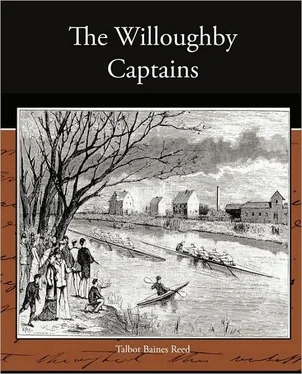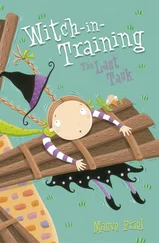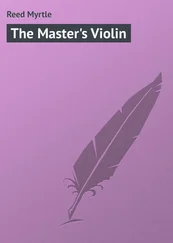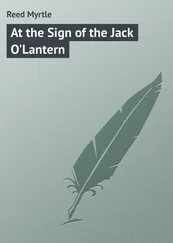“Oh, I don’t mean that, you know,” said Pilbury. “What I mean is, shutting up rows, and that sort of thing.”
“What can a fellow do?” asked Cusack, dubiously.
“Oh, lots to do, you know,” said Pilbury—“dominoes, you know, or spellicans. I’ve got a box at home.”
“Jolly slow always playing dominoes,” said Cusack, “or spellicans.”
“Well, then, there’s—”
“Hold hard!” broke in Cusack, struck with a sudden idea. “What’s the name of the thing old Philpot’s always at?”
“What, chemistry? Jolly good idea, old man! Let’s go in for that.”
“Not a bad lark,” said Cusack—“lots of explosions and things. Philpot told me he could make Pharaoh’s serpents, and smells like rotten eggs. We’ll get him to coach us, eh, Pil?”
“I’m game,” said Pil, no less delighted than his friend at this happy thought.
And, full of their new idea of “going it steady,” the two worthies forthwith sallied out and made hue and cry for Philpot.
Unless Philpot in his leisure moments was engaged in some predatory expedition, or happened to be serving a term of imprisonment in the detention room, it was a pretty safe guess to look for him in the laboratory, where as an ardent student of science he was permitted to resort, and within certain limits practise for himself. Philpot himself bore the office of “second under bottle-washer” in Willoughby; that is, he assisted the boy who assisted the chemistry fag who assisted the assistant master to the science master; and on the strength of this distinction he was allowed some special privileges in the way of improving himself in his favourite branch of study. He was on the whole rather a promising pupil, and had a very fair idea of the properties of the several substances he was allowed to experiment with. Indeed he had had to pass an examination and perform some experiments in the presence of the master before he was allowed to enter the laboratory as a private student at all. No one knew exactly how he distinguished himself on that occasion, or how he succeeded with his experiments, but it was well-known that, if he had succeeded then, he had never done so since; that is, according to anybody’s idea but his own.
Cusack and Pilbury found him busy blowing through a tube into a bottle of water, looking very like a purple cherub bursting at the cheeks. He was so engrossed with his task that he did not even notice their entry, indeed it was not till Pilbury had stepped behind him and clapped him suddenly on either side of the face, making his cheeks explode like a small balloon, and spilling the contents of his bottle all over the table, that he became aware that he had visitors. “What a frightful idiot you are, Pilbury!” he exclaimed; “you’ve spoilt that whole experiment. I wish you’d shut up fooling and get out.”
“Awfully sorry, old man,” said Pilbury, “but you did look so jolly puffed out, you know; didn’t he, Cusack?”
“Now you’ve done, you’d better hook it,” said Philpot, “you’ve not got leave to come here.”
“Oh, don’t be riled,” said Cusack; “the fact is, Pil and I came to see if you’d put us up to a thing or two in this sort of business.”
“We’ve gone on the steady, Phil, you know,” explained Pilbury, in conciliatory tones, “and thought it would be rather jolly if we three worked up a little chemistry together.”
“We’d watch you do the things at first, of course,” said Cusack, “till we twigged all the dodges.”
“And it would be jolly good practice for you, you know, in case ever old Mix-’em-up is laid up, and you have to lecture instead.”
Philpot regarded his two would-be pupils doubtfully, but softened considerably as they went on.
“You’ll have to promise not to fool,” said he, presently, “or there’ll be a row.”
“Oh, rather; we won’t touch anything without asking, will we, Pil?” replied Cusack. “Awfully brickish of you, Philpot.”
Philpot took the compliment very complacently, and the two students settled themselves one on either side of the table and waited for operations to begin.
“Wire in, old man,” said Pilbury, encouragingly; “cut all the jaw, you know, and start with the experiments. Can’t you give us a jolly flare-up to begin with?”
“All serene,” said Philpot, who had now quite recovered his humour, and was pleased to find himself in the position of an instructor of youth, “wait a bit, then.”
He reached down from a shelf a large saucer containing water, in which lay a round substance rather like the end of a stick of peppermint-rock. On this Philpot began to operate with a pair of scissors, greatly to the amusement of his spectators, for try all he would he couldn’t get hold of it.
“What are you trying to do?” said Cusack.
“Cut a bit off,” said Philpot, trying to stick the substance with a long bodkin, in order to hold it steady.
“Why, that’s not the way to cut it, you old dolt,” said Pilbury. “Here, I’ll do it,” and he advanced to the saucer.
“What’ll you do?”
“Why, fish it out, of course, and cut it then.”
“You’d better not try. It’s phosphorus.”
“Is it, though — and what does it do?”
“Burn you, rather, unless you keep it in water. Ah, got him at last.”
So saying Philpot triumphantly spiked the obstinate piece of phosphorus, and succeeded in cutting off a small piece.
“Is that what makes the flare-up?” asked Cusack.
“Yes, wait a bit, till I get the jar.”
“What jar?” asked Pilbury. “Here’s one; will this do?”
“Look out, I say!” exclaimed Philpot, in great excitement; “let it go, will you?”
“What’s the row?” asked Pilbury and Cusack, both in alarm.
“Why, that’s got my oxygen in it,” cried Philpot, securing the bottle and gently lifting it on to the table, taking care to hold the glass plate that covered the mouth in its place.
“Got his what in it?” asked Cusack.
“Oxygen. It took me an hour to get.”
“There’s nothing in that empty jar,” said Pilbury, laughing. “Isn’t there, though?” said Philpot; “it’s full.”
“You mean to say that jar’s full of something,” said Cusack. “Look here, don’t you try to stuff us up. What’s the use of saying it’s full when it’s empty?”
“It’s full of gas, I tell you,” said Philpot. “Don’t you talk till you know.”
This rebuke somewhat silenced the two devotees of science, who, however, continued to regard the jar sceptically and rather contemptuously.
Philpot next dived into a drawer and drew from it a large cork, through which passed a long wire having a small cup at the lower end.
“Now look out,” he said.
He proceeded to shovel the small piece of phosphorus into the little cup under the cork, and drawing it out of the water, applied a light. The phosphorus lit up immediately, and at the same instant he slipped the glass plate off the mouth of the oxygen jar, and clapped the cork, with the wire and cup hanging down from it, in its place. The effect was magical. The moment the phosphorus was introduced into the oxygen it flared up with a brilliancy that perfectly dazzled the spectators, and made the entire jar look like one mass of light.
The two pupils were delighted; Philpot was complacently triumphant; when all of a sudden there was a loud report, the illumination suddenly ceased, and the jar, broken to pieces, collapsed.
Pilbury and Cusack, who at the first alarm had retreated somewhat suddenly to the door, returned as soon as they perceived there was no danger, and were profuse in their praises of the experiment and the experimenter.
“Awfully prime, that was!” cried Cusack; “wasn’t it, Pil?”
Читать дальше












